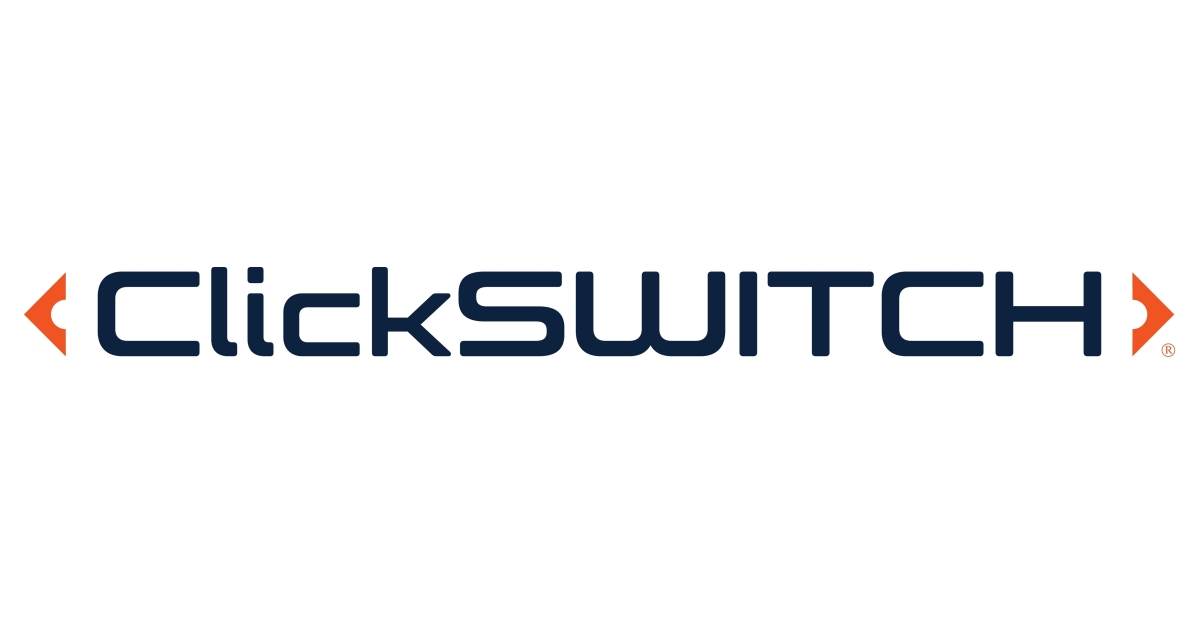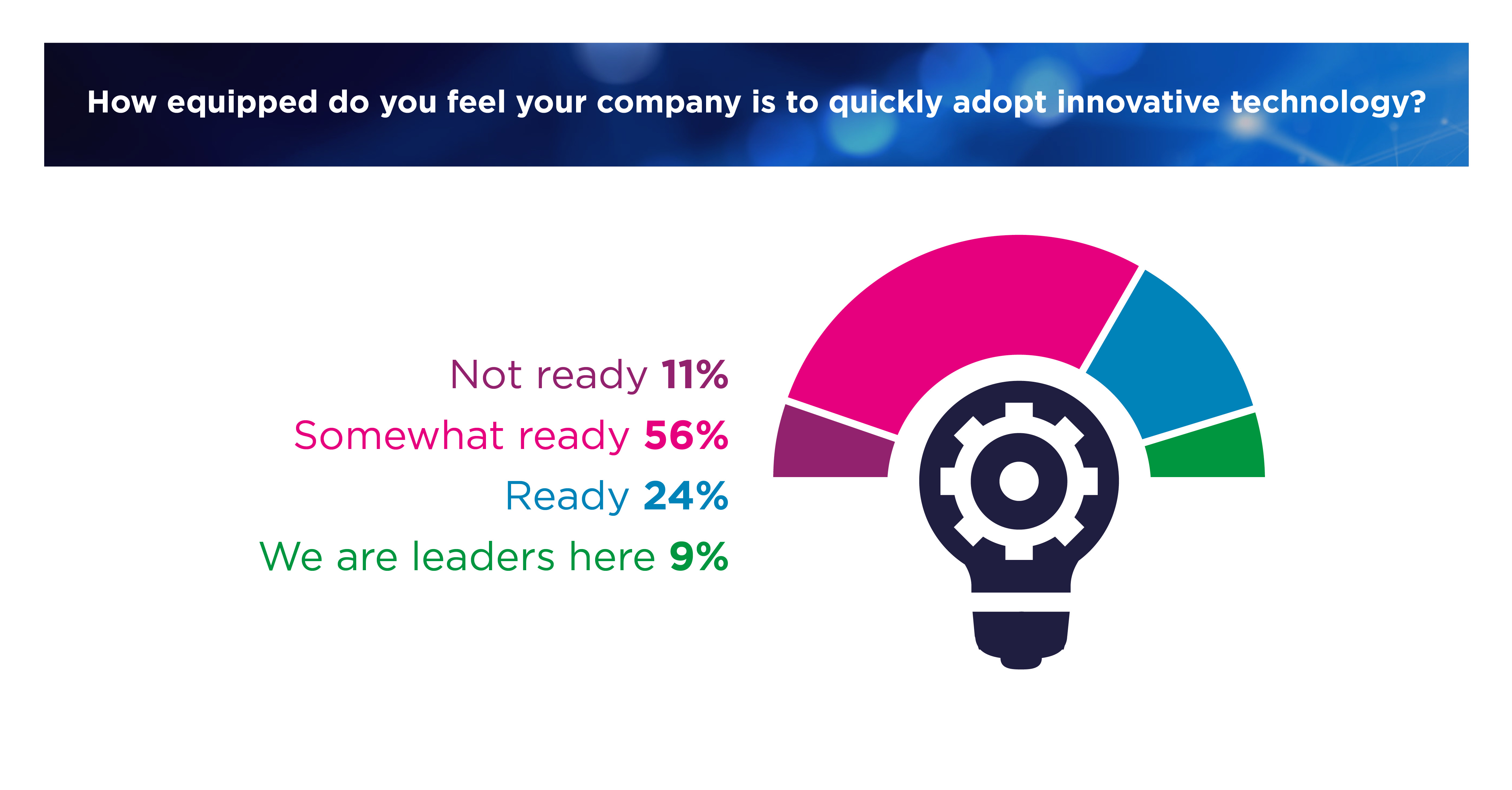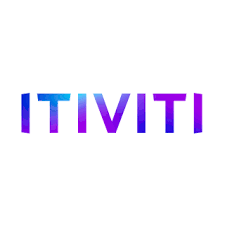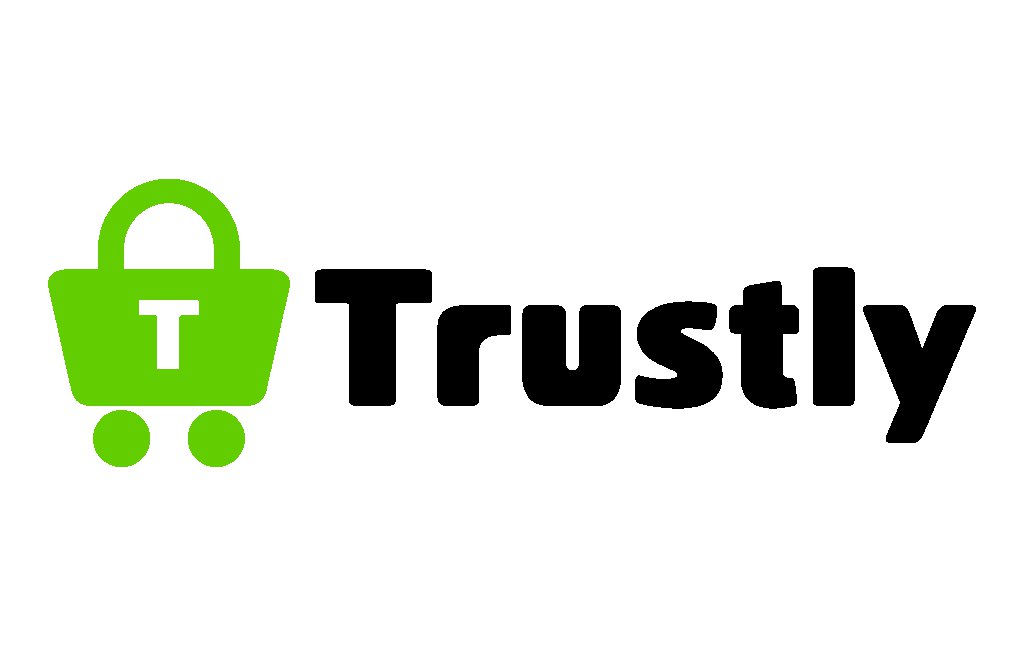Published
- 04:00 am

ClickSWITCH today announced that it would deliver ClickSWITCH’s technology to clients of Finastra’s core banking solutions, Fusion Phoenix and Fusion UltraData. The two companies already share some overlap of clients, including both banks and credit unions.
“Finastra is always looking for ways to add business value for its client base by collaborating and integrating with innovative third-party fintechs. Fusion Phoenix with its open architecture, rich open REST-based API and fintech-friendly approach makes it very easy for fintechs to integrate with our core,” said Milind Pathak, Senior Director, Product Management, Finastra. “Leveraging ClickSWITCH, our Fusion Phoenix and Fusion UltraData core clients will be able to grow their deposits and increase customer engagement.”
ClickSWITCH provides a solution to financial institutions allowing customers to switch direct deposits and recurring payments in just a few minutes. The solution also enables financial institutions and fintechs the ability to fund new accounts and increase the profitability of new account holders.
“This integration will answer the request from ClickSWITCH clients for tighter integration with Finastra products to expedite the switching of direct deposits and payments,” commented Eric Edwards, Chief Revenue Officer for ClickSWITCH. “Additionally, the relationship enables us to remove onboarding friction for new customers of Finastra – for banks and credit unions – facilitating preferred financial institution status and encouraging customer loyalty more quickly.”
Related News
- 09:00 am

More than two-thirds of insurance carriers will invest in predictive analytics and artificial intelligence over the next two years. Sixty percent of carriers will invest in automation, and more than half will invest in machine learning.
The technological revolution in insurance isn’t just a thing of the future. It’s already here.
If a business isn’t equipped to embrace the changes that are beginning to take hold in the insurance industry, that business is sure to soon find itself behind a quickly moving curve. The strategies that worked yesterday might still work today, but tomorrow they may well be obsolete. It’s time to move on to a new way of thinking - one that relies on data and technology to do the heavy lifting that was once left to manual intervention.
The end result? Improved efficiency. Faster claim processing. A more immersive and comprehensive customer experience than ever before. But none of it comes without first incorporating the technology of tomorrow.
As a thought leader in the rapidly changing insurance industry, Insurance Nexus, brought to you by Reuters Events, prides itself on being at the forefront of emerging trends and technological innovation. The annual Insurance Nexus AI and Analytics USA Summit conference plays host to an engrossing and all-encompassing summary of the future of the insurance industry. This one-stop-shop for industry information includes presentations and roundtable discussions from some of the best and brightest minds in the field. In advance of their next summit, key insights of this group have been compiled in an infographic, so that all interested parties might get a head start on embracing the technology that will define insurance operations in the future.
This incorporation of technology isn’t just something that’s going to happen down the road. In many cases, it’s happening right now. In a recent Insurance Nexus survey of 300 insurance executives, half of the respondents stated that they’re already seeing technology like machine learning and artificial intelligence having a noticeable impact on their daily roles. Furthermore, an additional 40 percent of executives believe they’ll start to see an impact in the next two years.
In other words, a company that puts off investing in new technology not only delays the inevitable, but they also put themselves at a major competitive disadvantage. If ninety percent of the competition has already begun the process of embracing paradigm-shifting technology, businesses that lag behind face a major challenge in catching up to the leading organizations in their field. A forward-thinking business at least owes it to itself to learn about what’s out there, specifically, the options available to the business that may help to significantly improve operations.
One particularly interesting fact derived from the Insurance Nexus study is that an insurance company doesn’t necessarily have to pour large sums of money into this innovative wave of technology to see results. In fact, approximately half of the executives surveyed stated that they’ve invested less than a million dollars into new technology. What does this mean? For an insurance company that’s just learning about the technological means available to them, the prospect of catching up to industry leaders might not be as daunting as once feared. Only 14 percent of insurance executives surveyed are investing more than $5 million into this technology. There’s plenty of room, and plenty of time, for a smart business to learn about the benefits of these technological innovations and how they can be incorporated into daily operations.
We’ve talked a lot about how technology is emerging and starting to become commonplace in the insurance industry. But how do these new innovations actually correspond to increased efficiency on a daily basis?
One surveyed executive has this to say about the marriage of technology and insurance: “Insurance has the most to gain from innovative technology. It has had profound impact on our growth prospects and operating margins.” Given the enthusiasm with which insurance businesses have adopted emerging technological trends, it’s clear that many in the industry share this opinion.
Artificial intelligence has been on the rise for some time, but it’s only recently become evident how it can benefit an insurance company. Consider the future of auto insurance claims. Today, the process requires phone calls, inspections and a lengthy review process. An AI-assisted future could potentially remove many of the barriers between an accident and a processed claim. For example, real-time data from cars could be used to assess the extent of the damage, preventing the possibility of inconsistency from claim adjusters.
The above example is one that might not be realized for years. But it provides a glimpse at how technology can completely transform an industry that has worked differently for decades.
In other ways, technological developments have already disrupted old ways of thinking. Innovations such as automation and predictive analytics have given insurance companies tremendous insights into their customers, the likes of which have never been seen. Insurances now know more than ever what to expect from insurance consumers, helping to streamline internal operations, enhance planning for the future and better understand the types of scenarios in which a given customer might find himself or herself.
An Insurance Nexus survey respondent put it best - “Data has been at the core of the insurance industry for decades. It’s time for us to use data to drive predictive insights with AI, save time with automation, and generate opportunities for the company by harnessing technology that’s never been more accessible.” These words ring true, and it’s up to interested insurance companies to take the first step. They can do this by downloading the Insurance Nexus infographic that neatly summarizes the technological developments that are beginning to bubble to the surface. This infographic contains additional insights derived from the Insurance Nexus survey of 300 insurance executives; it also provides a brief overview of how technological innovations are already helping insurances to revamp their operations. To download the infographic, click here.
Related News
- 01:00 am

The EIB Group, consisting of the European Investment Bank (EIB) and the European Investment Fund (EIF), has provided a mezzanine tranche guarantee of around EUR 100m to Commerzbank AG on a EUR 1.500m granular portfolio of loans to SMEs and Mid-Caps originated by Commerzbank in its ordinary business. The guarantee will release regulatory capital for Commerzbank and will enable Commerzbank to provide further lending of up to EUR 400m to innovative SMEs and Mid-Caps in Germany.
The transaction was made possible by the support of the “European Fund for Strategic Investments” (EFSI). The EFSI is the central pillar of the “Investment Plan for Europe”, or Juncker-Plan, in which EIB Group and the European Commission are strategic partners to strengthen the competitiveness of the European economy. Under the guarantee, EIB takes on the mezzanine risk under a synthetic securitisation transaction with Commerzbank. EIF is fronting the operation by providing a guarantee to Commerzbank in relation to an existing portfolio of SME and Mid-Cap loans. EIB will provide a back- to-back counter-guarantee to EIF which will fully mirror EIF’s obligations under its guarantee.
EIB Vice President Ambroise Fayolle, in charge of innovation and operations in Germany, commented: “The transaction clearly leverages EIB Group synergies, and strengthens Commerzbank’s capacity to provide fresh funds to innovative companies. This is a top priority for the EIB Group as SMEs and Mid-Caps are responsible for the creation of one in every two new jobs. Only this new operation with Commerzbank is expected to support nearly 60000 jobs. Therefore, I am very glad that we are continuing our long and successful cooperation with Commerzbank in providing fresh access to finance for innovative businesses in Germany.”
EIF Chief Alain Godard: “EIF is pleased to be working with Commerzbank and the EIB to provide additional access to finance for SMEs and Mid-Caps. The combination of EIF’s investment and structuring expertise and the EIB’s efficient deployment of EFSI funds offer a competitive financing solution for Commerzbank which will serve to boost the supply of finance in the real economy.”
Roman Schmidt, Head of Capital Markets, Commerzbank AG said: “Commerzbank is Germany’s leading bank for SME and mid-cap lending and has been proudly co-operating with promotional banks for many years. This innovative product helps us to satisfy increasing client demands whilst providing the opportunity to manage our capital. Closing this consecutive synthetic securitisation under EFSI is a further proof of Commerzbank’s innovative spirit as well as a commitment to further support the German Mittelstand at competitive conditions.”
Related News
- 06:00 am

A growing number of Asian private bankers and wealth managers rely on Itiviti’s next-generation platform to handle complex order aggregation while automating high volume order flows taking advantage of Itiviti’s advanced compliance and reporting capabilities for best execution.
“We were very impressed with Itiviti’s innovative approach to address significant market and regulatory challenges, while offering a powerful, flexible platform for advanced trading technology adoption,” said Sebastian Enberg, Editor, Asian Private Banker. “Itiviti’s recognition as Best Trading and Execution Platform is well deserved, and this award clearly underlines their prowess as the leading technology partner in the private banking and wealth management industry.”
Designed for automation and built on a modular architecture, Itiviti’s platform is highly customizable to address a broad range of use cases for trading on the Asian and global markets. It is available through managed infrastructure that offers resilience, performance and scalability.
“We are thrilled and honored to receive this important industry recognition which testifies to Itiviti’s excellent standing with our APAC clients and traders in the region,” said Ofir Gefen, Head of APAC, Itiviti. “This award is the fruit of all the hard work by many people across the globe: from engineers and product managers to sales and support teams. We also view it as further confirmation of Itiviti’s strategy to stay committed to innovation and the importance we place on heavily investing in R&D.”
Related News

Juan Miguel Pérez
CEO and Co-Founder at Finboot
The growing role of ESG in business see more
- 08:00 am

BNY Mellon has successfully on-boarded Liontrust Asset Management Plc as the first end-to-end client on its new Investment Operations platform. The new open architecture platform will improve automation and integration capabilities, and offer enhanced data management and control capabilities to institutional asset managers. The Investment Operations business encompasses the capabilities previously aligned with Middle Office Solutions, along with an enhanced set of services to support the evolving needs of our institutional asset management client base.
The new Investment Operations platform provides best-in-class, modular data capabilities to give clients greater operational transparency and flexible integration to outsource services and operations. Clients can utilize a full range of services, which includes trade support, derivatives lifecycle, collateral management, bank loans, investment book of record (IBOR) and investment performance across all asset classes. These capabilities enable asset managers to make better informed investment decisions while managing risk, improving efficiencies and reducing costs.
“It has been great working with Liontrust to on-board the company as the first end-to-end user of our new platform,” said Peter Keaveney, Global Head of Investment Operations at BNY Mellon. “This is an exciting milestone as we move forward in bringing all of our Investment Operations clients onto our highly efficient, scalable operating model and technology platform. Our solution simplifies complexity and is designed to reduce operational risk – from system integration and trade support to new product launches and distribution across geographies – so clients can focus on their core competency of managing investments.”
Vinay Abrol, Chief Operating Officer and Chief Financial Officer of Liontrust Asset Management Plc, said, “Our continued success and growth will be aided by efficient, dependable and flexible operations. We have been impressed with BNY Mellon’s Investment Operations capabilities and leading technology, along with the professionalism with which their team transitioned us onto their new platform. We look forward to continuing to work with the BNY Mellon team in the future.”
Related News

Chris Holmes
Senior Vice President at KAE Consulting
Financial infrastructure plays a critical role in a country’s economic development and stability. It determines how efficiently financial services can be provided. see more
- 06:00 am

Wirecard, the global innovation leader for digital financial technology, today announced that it is helping German financial services giant SIGNAL IDUNA extend its online and mobile services with new payment methods. Consumers will be able to take out and pay for insurance online. Wirecard processes the payments as well the payouts in the case of successful claims. The company – that provides insurance policies for health, travel, household and more – also famously sponsors the Borussia Dortmund football stadium, the largest in Germany.
Founded over a hundred years ago and like many organizations in the financial services arena, SIGNAL IDUNA is currently going through a digital transformation. Digitalization is transforming the insurance market. The lines between channels are blurring and competition is intensifying all over the world. To avoid being left behind, savvy insurers are needing to create a seamless personalized experience for policy holders across all their channels. Wirecard offers everything insurers need to enable secure payment processing and an optimal checkout experience. Besides being quick and easy to integrate into existing systems, Wirecard’s solutions can help insurers systematically boost customer loyalty.
Through working with Wirecard, SIGNAL IDUNA has been able to integrate new payment methods seamlessly into an intuitive interface where customers can access its various solutions 24/7.
SIGNAL IDUNA offers powerful insurance and financial products as well as exclusive offerings for private and corporate clients, which are available online. In addition, the company has its own tailor-made app, which is available both in the App Store and in Google Play, so that customers can undertake all their insurance needs on the move.
“We want to provide a quick and targeted service to our customers. The cooperation with Wirecard is a further step in adapting to increasing digitalization and meeting the needs of the digital lifestyle. Thanks to an intuitive payment page based on the Wirecard platform, we can minimize friction and ensure an optimal experience for our customers,” explained Arne Boysen, Head of the Collections Department and Project Manager for the “alternative payment options” project at SIGNAL IDUNA. “The wide range of payment methods as well as the uncomplicated and fast integration were determining factors in choosing to work with Wirecard. Moreover, Wirecard meets our extremely high security requirements.”
“Wirecard is ideally placed to assist organizations such as SIGNAL IDUNA with their digital transformation to ensure they can differentiate themselves in a rapidly morphing marketplace,” added Christian Reindl, EVP Retail & Consumer Goods at Wirecard.
Related News
- 04:00 am

Online banking payments provider Trustly is pleased to announce a partnership with Norwegian Air, a listed company on the Oslo Stock Exchange and one of the world's largest low-cost airlines operating 500 routes. Through the partnership, Norwegian passengers will be able to pay for their tickets securely and directly from their online bank account.
Around the world, passengers have different payment preferences when it comes to booking travel and, increasingly, they are opting for new forms of payment. According to a recent study, travelers now more often choose to pay for travel with alternative payment methods like online banking payments and e-wallets than with cards and cash combined. In the Netherlands, Poland and Germany, online banking payments account for 70%, 51% and 49% of payments respectively, and in other countries, including Norway, Sweden and Finland, online banking payments are among the fastest growing payment methods.
Trustly’s partnership with Norwegian is now live across Finland, Germany, the Netherlands, Norway, Poland, Sweden and the UK, with plans to roll out in additional markets soon. Offering Trustly will help Norwegian not only to increase customer conversion, but also lower operational costs and lower exposure to chargebacks.
Johan Nord, Trustly’s Chief Commercial Officer, says: “Many of Norwegian’s largest markets are markets where consumers already have a high preference for online banking payments. This makes Trustly a great match for Norwegian, who will benefit from increased conversion in the checkout, and we’re proud to be able to support them in these key markets.”
Geir Karlsen, Norwegian Air’s Chief Financial Officer, says: “This partnership is yet another example of how we are strengthening and simplifying the customer experience. We’ve found a valuable partner in Trustly.”
Related News
- 03:00 am

EquiLend, the global technology company for the securities finance, collateral and swaps industries, today announced that its Collateral Trading service has gone live globally, following an intensive and highly successful pre-testing phase.
Clients from the Americas and Europe were active on the service as trading went live today, with users in Asia set to join in April. Many of these counterparties were involved in the EquiLend Collateral Trading Working Group, which was formed in July 2019.
EquiLend Collateral Trading offers funding and financing desks a centralized way to execute and manage trade structures with their counterparties. The new workflow supports collateral trade negotiation, execution and management of lifecycle events, such as substitutions and transaction rolls.
The initial rollout supports collateral upgrade and downgrade trades. In this market, a firm in need of high-quality liquid assets (HQLA)—to meet regulatory capital requirements or for balance sheet efficiency—typically trades lower-grade collateral plus a fee to a counterparty in exchange for HQLA, under a negotiated trade structure.
In addition to the core functionality of the platform that is now live, EquiLend is already planning further enhancements for an upcoming release. These include additional collateral trade types and straight-through processing capabilities, including connectivity to EquiLend Spire’s books and records and inventory management modules.
Click here for a video demonstration of EquiLend Collateral Trading.
Brian Lamb, CEO of EquiLend, says: “In the same way NGT revolutionized securities finance trading, and Swaptimization brought unparalleled liquidity and efficiency to the swaps industry, we believe EquiLend Collateral Trading is set to transform collateral trading and management. We are thrilled to be introducing this innovative new technology to a market in desperate need for efficiency and automation.”
Paul Lynch, Global Head of Products, EquiLend, says: “Collateral Trading not only offers clients access to a centralized pool of liquidity, but it enables them to manage lifecycle events throughout the tenor of their transactions. As a front-end collateral management system, Collateral Trading offers firms greater liquidity, improved efficiency and price discovery, which is unique in this market.”
With unique transaction identifiers (UTI), legal entity identifiers (LEI) and transaction timestamps produced at the point of trade, EquiLend Collateral Trading also assists clients with their Securities Financing Transactions Regulation (SFTR) and Central Securities Depositories Regulation (CSDR) obligations.









